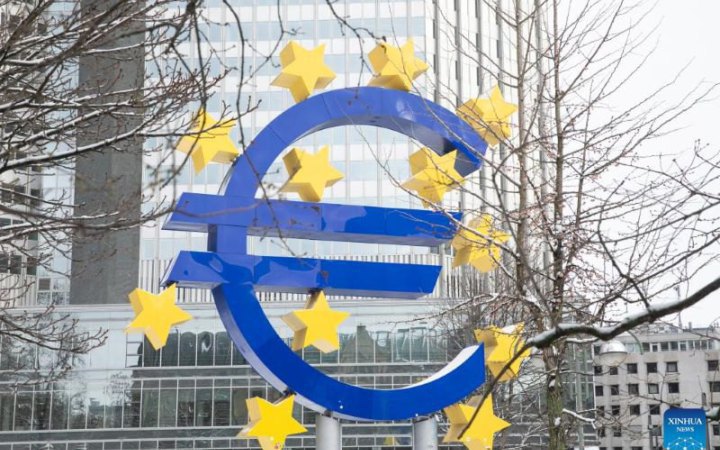The European Union has decided not to transfer €5bn of the proceeds from the investment of Russia's frozen assets in 2022-2023 to Ukraine. The money will be held in Euroclear, the body holding the vast majority of Russia’s central bank's assets in Europe, Politico writes, citing proposals that have not yet been published.
Earlier, the European Commission proposed to use 90% of the proceeds from frozen Russian assets held in Europe to buy weapons for Kyiv. This is worth between €2.5 billion and €3 billion a year. But these are the funds received after 15 February 2024, the date when the EU countries agreed to transfer them to Ukraine, and the profits earned before that will remain in the Brussels-based securities depository Euroclear.
The Clearing House holds €192 billion worth of Russian state assets that generate income. These funds have been frozen since shortly after the war began in February 2022.
According to the Commission, the €5 billion retained by Euroclear is a buffer allowing payment for ongoing and potential lawsuits in Russia and elsewhere.
"The 2022-23 earnings related to Russian immobilized assets are separated from the ‘business as usual’ earnings," Euroclear said in a written response to Politico.
They added that they will not distribute these profits to shareholders and retain them until further guidance is provided.
According to the editorial, the funds are earmarked for “the expenses, risks and losses incurred by central securities depositories … due to the war in Ukraine".
As of February Russian entities have filed 94 lawsuits in Russia demanding payback to Euroclear, according to a Belgian official with knowledge of the proceedings who spoke on condition of anonymity because of the sensitivity of the issue. However, in Ukraine, the argument that the €5bn should be used for legal costs is not supported.
"I never heard that €5 billion is a buffer for Euroclear," said Denys Malyuska, Ukraine's Justice Minister, in a commentary.
He added that €5bn is too large a sum to buffer against potential lawsuits.
Ukrainian officials said the sum also doesn't square with the fact that Euroclear only suffered a €34 million loss in income as a direct consequences of the war, according to the company’s CEO Lieve Mostrey.
But legal experts noted that backdating the profit seizure would have been a legal minefield — which explains why the Commission's proposal doesn't cover the proceeds generated in 2022 and 2023.
"There are very limited circumstances under which regulations are allowed to apply retroactively,” said Malyuska, himself a former lawyer.
- During the two years of full-scale war, Brussels has not dared to transfer frozen assets to Russia. However, there has been progress on the issue of transferring the profits from these assets to Ukraine for the purchase of weapons.
- Foreign Minister Dmytro Kuleba explained that frozen assets in Germany ($6.5 billion), Austria ($1.8 billion), Ireland ($2 billion) and Poland ($1.13 billion) would be enough to help rebuild more than 3,500 damaged or destroyed educational facilities, including 1,700 schools, more than 1,000 kindergartens and 586 universities.
- Recently, the Prime Minister of Ukraine also said that the confiscation of frozen Russian assets should become a reliable source of support for Ukraine and funding for reconstruction. According to the prime minister, there is a "full readiness" to use the proceeds of Russia's frozen assets, but this is only the first step.








